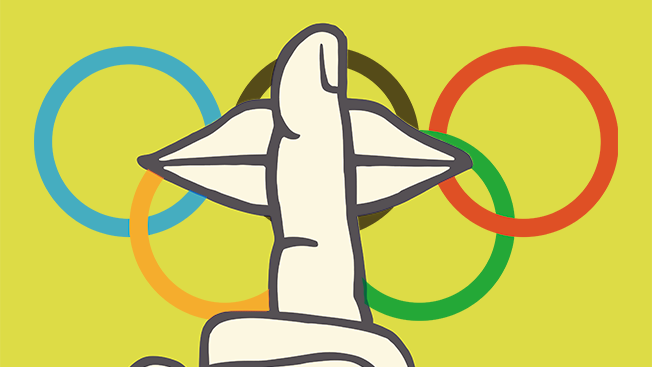The Summer Olympics Are Not Winning Gold on Social Media
With headlines reporting the Opening Ceremony’s lackluster ratings, perhaps the 2016 Summer Olympic Games could benefit from more “buzz.”
Unfortunately, due to the International Olympic Committee’s Orwellian list of terms that only official Olympic sponsors can use, the United States Olympic Committee might be reducing the very social media conversations that would drive ratings.
Based on the social media restrictions, if non-sponsors use terms like “Road to Rio,” “Team USA” and “Go for the gold” in tweets or other social media conversations, the USOC will send them a cease-and-desist letter. If brands ignore the letter, then the organization says it will take legal action.
This rule not only violates the spirit of the Olympics, it’s self-defeating. By restricting terminology, the USOC will reduce the volume of conversation about the Games, something it could really use. Meanwhile, many brands will likely skirt the letter of the law by avoiding the list of terms but getting their messages across anyway, making the USOC look out of touch and overly restrictive. The organization can reverse this by trimming its list.
Protecting intellectual property in the social media age
The USOC’s impulse to protect trademarked terms is correct in some respects. It wouldn’t be right ifGeico, for instance, could use Prudential’s “Get a piece of the rock” tagline. Likewise, if a brand likeCoca-Cola spends millions of dollars for an Olympics sponsorship, the brand should have rights that non-sponsors don’t.
It’s also understandable for the USOC to maintain that certain words—like “Olympics”—are protected, although it’s hard to think of others that are fair game. After all, the National Football League forbids non-advertisers from using the term “Super Bowl” to describe the huge event that wraps up the season in early February. Everyone else refers to it as the “Big Game” or uses a similar euphemism. Most consumers probably don’t even notice or care.
However, restricting discussion by taking dozens of words out of circulation is taking things too far. The NFL itself displayed a similar overreach when it began going after churches that had organized Super Bowl parties because they used that term to advertise the event. That incident illustrates the perils of prizing IP over free expression in the social media age.
Marketers gonna market
The reality is, despite the USOC’s Draconian restrictions, brands are still going to talk about the Olympics on social media. That’s because it’s that rare event that’s both huge and non-polarizing. (Most brands aren’t weighing in on the presidential election, for instance.) Brands love to riff on uplifting events that consumers are interested in. The Olympics top the list of such events.
That’s why brands are plunging ahead anyway. Ford), for one, got around the rules with anOlympics-themed Snapchat campaign with the theme, “We are all fans.”
Adidas’ Speed Takes campaign of YouTube videos has been so successful that more than one-third of participants in a Tolunda global survey misidentified the brand as an official sponsor of the 2016 Games.
So far, the USOC hasn’t managed to trademark the term “fans” or “speed.” Still others might exploit a social media loophole: At the moment, it’s impossible for the USOC to police Snapchat.
In future years, that may be even more of a headache, because messaging services–another hard-to-police venue–are growing in popularity. According to eMarketer, by the time the 2018 Winter Olympic Games roll around in Pyeongchang, South Korea, some 2 billion people will be on messaging services like Facebook Messenger, WhatsApp and China’s WeChat.
Against such opposition, the USOC will continue to create bad will by snooping various social media channels to find instances of IP abuse. The organization would save a lot of time and energy by drastically shortening its list, embracing the fact that it will never be able to control the conversation on social media and sitting back and enjoying the spectacle of the games, just like the rest of us.


